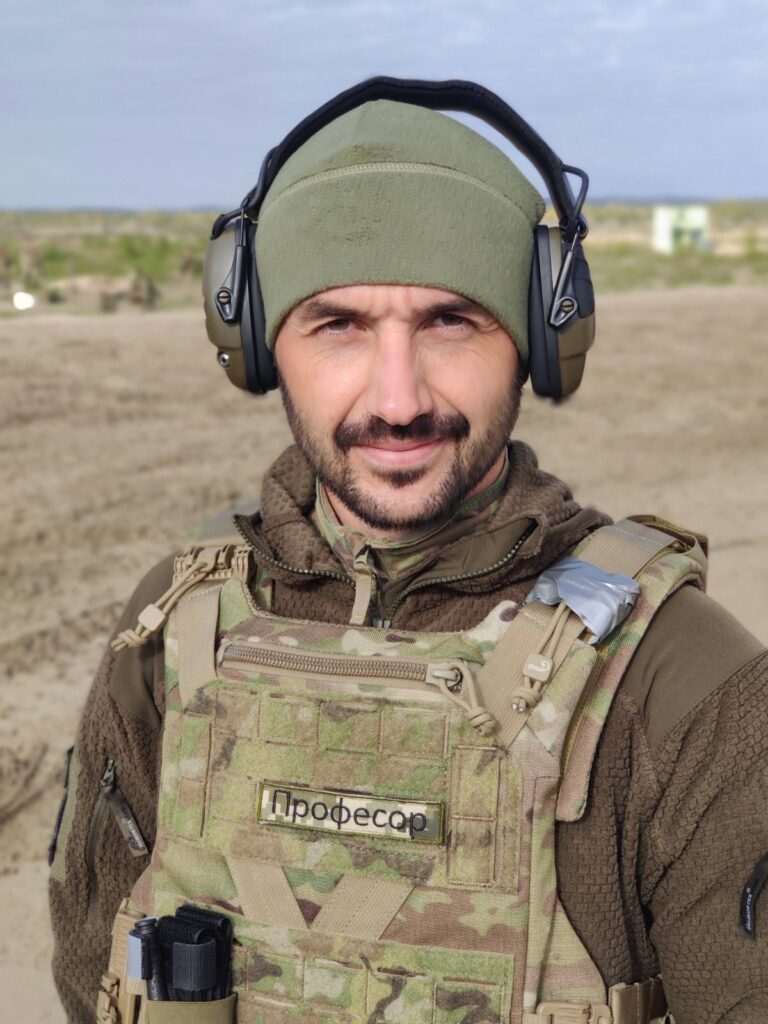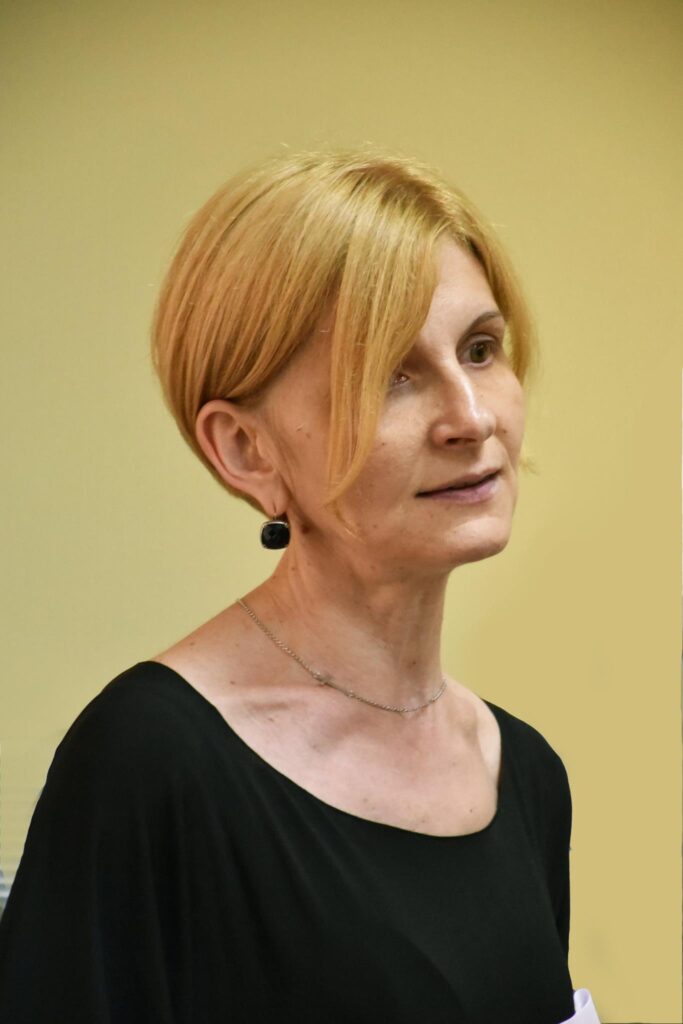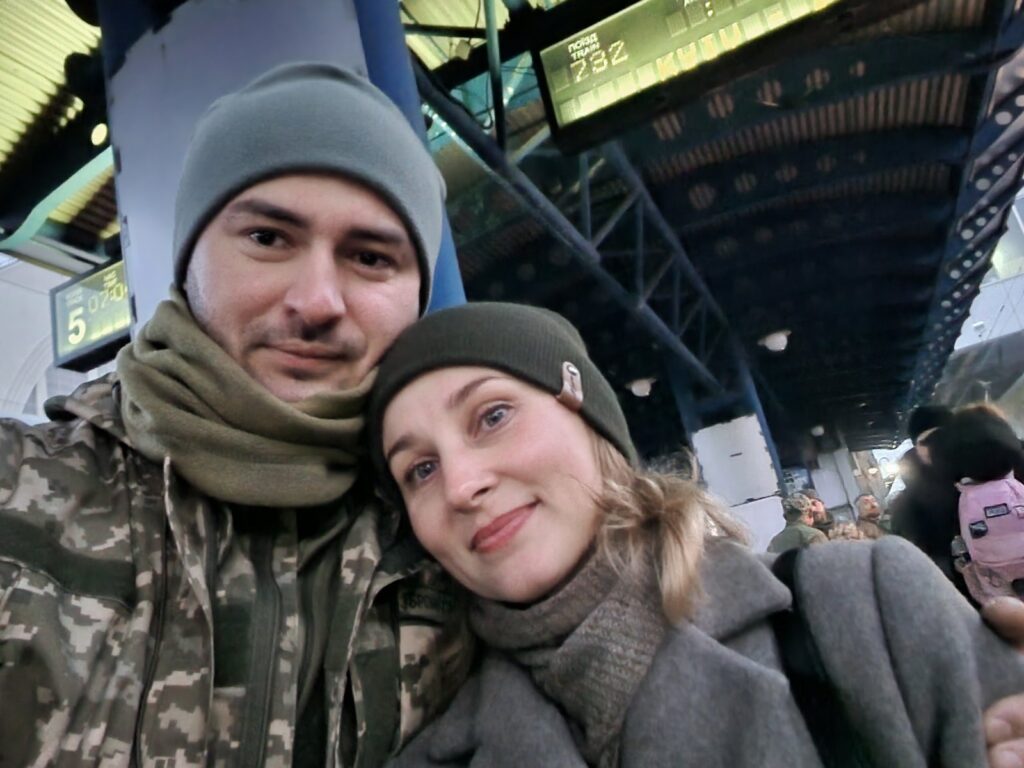pictured above: Dr. Svitlana Babiichuk with her late husband, Yaroslav.
Determined to Continue Their Work, Scholars Apply for the Fulbright Program Amid War
In the face of adversity, the human spirit finds remarkable ways to persevere and triumph. Two recent Fulbright awardees from Ukraine — Dr. Svitlana Babiichuk and Dr. Ihor Serdyuk — exemplify courage, resilience, and the transformative power of education. As a program officer, I’ve had the privilege of witnessing the Fulbright Program’s profound impact on individuals as they regain hope and meaning, reclaim their lives, and continue their pursuit of knowledge even as war rages on in their home country. Here, I reflect on their journeys.
From the Frontlines to Fulbright
It began nearly a year ago with letters of encouragement and invitations to participate in the Fulbright Visiting Scholar Program (FVSP) competition, which I sent to Ukrainian scientists, researchers, professionals, and artists. It was difficult to communicate with applicants as they grappled with the loss of friends and loved ones. How could I compose an encouraging letter, or find the right words to make people feel hopeful about the future?
I was surprised when my letters received warm responses: scholars shared their academic work and plans, enthusiastically discussed their research interests and published papers, and recounted their experiences adapting to wartime conditions. Most significantly, they all expressed a strong belief in the importance of education and science, recognizing their long-term role in advancing a stronger future for Ukraine and our global society. This was the leitmotif of my correspondence with potential participants, and this leitmotif found understanding and genuine support among them.
Dr. Ihor Serdyuk, a history professor at Poltava National Pedagogical University, responded with sincere gratitude, saying that my letter prompted him to apply and revive his dream of becoming a member of the Fulbright family. Initially, he said, he wanted to postpone his application until next year (or until victory); the war left him with little time to prepare an application. But extreme field conditions, constant life threats, and immense fatigue ultimately did not prevent him from pursuing his dream. In his free moments and with spotty Internet access, Dr. Ihor managed to prepare his application and submit it by the deadline.

At the time, I was unaware that behind Dr. Ihor’s characteristic modesty was the great dedication of a scholar, university lecturer, and military instructor. Since the start of Russia’s invasion of Ukraine, Dr. Serdiuk has been lecturing military personnel on topography, teaching them navigation and using compasses to move through forests. He later joined a volunteer unit. He learned drone operation, then trained military personnel to operate strike and reconnaissance drones. Since the war began, Dr. Serdiuk has worked as an instructor throughout training grounds in Ukraine and, in collaboration with the NGO “Victory Drones,” trained over 25,000 military personnel.
Dr. Ihor was recommended for participation in the Fulbright Visiting Scholar Program. His response to the acceptance email touched me deeply. He wrote that in April 2022, when he was searching for Russian equipment near Okhtyrka as part of the volunteer unit, he promised himself that if he survived, he would apply for a Fulbright. He added that my letter was the incentive to make that dream come true.
Dr. Ihor shared, “I know many brilliant scholars who belong to the Fulbright family. But I was skeptical about myself, I always thought that I wasn’t ready, that it wasn’t time yet, and that I had little chance of passing the selection. The war changed everything and taught me not to postpone for later, to go to the goal regardless of obstacles or circumstances. As for the Fulbright, my fears turned out to be imaginary, and I am deeply touched by the support and atmosphere of the community.”
Restoring Hope
The response I received from Dr. Svitlana Babiichuk, Ph.D. in Pedagogy and Head of the GIS and RS Laboratory at the National Center of Junior Academy of Sciences of Ukraine, remains fresh in my mind. When she received her acceptance letter, Dr. Svitlana said that she smiled for the first time in months. She began to cry and quietly said, “You can’t even imagine how crucial this decision was for my life. Fulbright is the best thing that has happened to me recently.”
Dr. Svitlana struggled with intense anxiety, shock, and despair at the report of her husband’s disappearance and eventual the confirmation of his death from combat sworn brothers. Unsure of how to move forward without her loved one, Dr. Svitlana said that the news of becoming a Fulbright scholar restored the desire to dream into her life. She told me that Fulbright gave her hope after losing her husband and helped her regain a sense of time, perspective, and happiness. “I will continue the dreams and the mission of my husband, who gave his life for it – Ukraine should be brave, well-educated, independent and democratic. So, it is a great honor for me to have the opportunity to do research at one of the best universities in the United States and to implement these practices in Ukrainian education,” said Svitlana.
War leaves behind death and shattered lives; war adds the names of the fallen to our vocabulary… I will never find words sufficient to thank our soldiers. I will never be able to repay them for the life that continues…
Despite war, violence, death, and difficult times, Ukrainian teachers continue to educate children while scholars and researchers enrich us and the world with new knowledge about Ukraine and its ancient history, culture, and traditions. It is a responsibility and privilege for me to be part of this important process. Our collective Ukrainian THANK YOU to IIE/Fulbright for unwavering support to Ukrainian scholars and providing them an opportunity to follow their dreams and pursue their research, build relationships with American colleagues and institutions, learn best practices, and share their stories with the world.

Program Officer in IIE’s Kyiv Office
